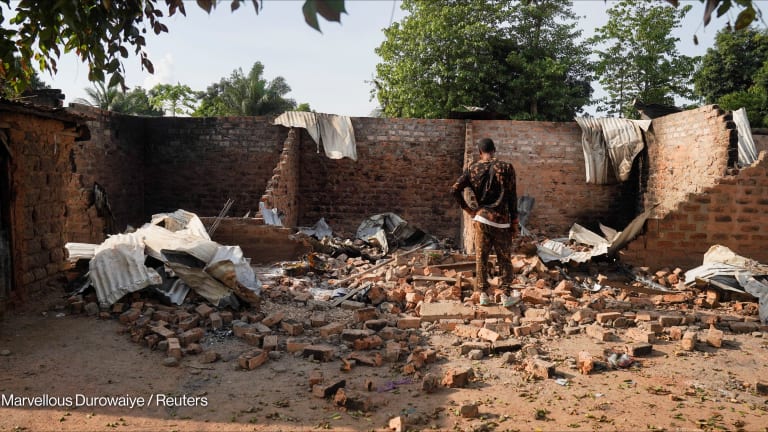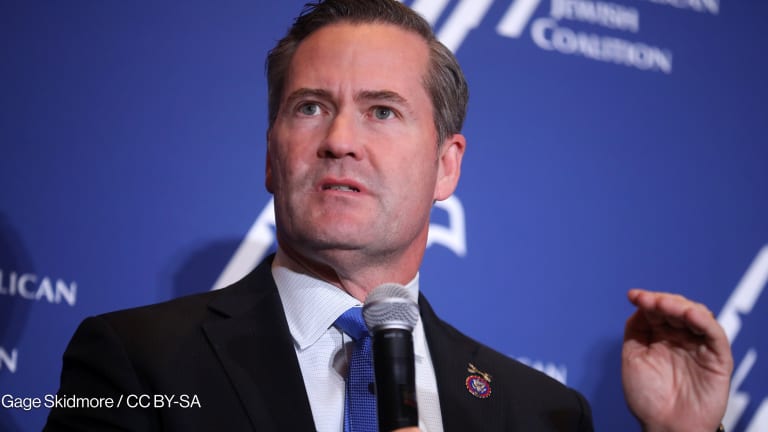
President Joe Biden’s decision last week to withdraw all remaining U.S. troops from Afghanistan by September also marked a major transition for U.S. foreign assistance.
For nearly two decades, the U.S. government and its allies have funded development and reconstruction projects in the country with the close coordination and support of a major military operation. While Afghanistan’s war is not over — nor is all U.S. military involvement in it — the troop withdrawal appears to signal the end of an era in which U.S. development resources were joined with a large-scale American conflict.
The people and organizations that have been centrally involved in that relationship must now wrestle with its successes and failures — as well as what comes next.
“There was a sense that we have a very, very important role to play in this as part of the puzzle of Iraq and Afghanistan in particular,” said Andrew Blum, executive director at the University of San Diego’s Joan B. Kroc Institute for Peace and Justice.
“As part of all of the reckoning around the endless wars, we have to see what was our positive and what was our negative impact,” Blum said, referring to those in the peace-building field.
For a policy decision with such significant implications, large U.S. and international aid organizations that have worked in Afghanistan offered mixed and even muted responses.
Devex contacted seven large humanitarian and development organizations and one U.S. coalition of NGOs to ask if they support Biden’s decision to withdraw troops from Afghanistan.
None expressed explicit support for the withdrawal. Three shared concerns about humanitarian access and civilian protection but did not take a position on the withdrawal itself.
“As part of all of the reckoning around the endless wars, we [peace builders] have to see what was our positive and what was our negative impact.”
— Andrew Blum, executive director, University of San Diego’s Joan B. Kroc Institute for Peace and Justice“Globally speaking, our concern is not whether conflict is taking place. Rather, our concern is that the negative effects of conflict, most acutely felt by civilians, be kept to a minimum,” Jason Straziuso, media team leader at the International Committee of the Red Cross, wrote to Devex.
Only one organization — Refugees International — shared a specific concern about the withdrawal process that Biden announced.
“I am concerned about the risks posed to Afghan civilians by a U.S. troop withdrawal tied to a [certain date]. … That was the position of Refugees International in the prior administration, and it remains our view,” Eric Schwartz, the organization’s president, said in a statement.
Humanitarians are typically bound by the principle of neutrality so that they can negotiate access to communities affected by conflict. Their hesitation to judge any particular party to a conflict reflects that. However, experts from the peace-building field are more closely involved in policymaking, Blum said, and therefore might have sharper critiques of particular decisions or strategies.
For Liz Hume, who worked in Afghanistan and is now acting president and CEO at the Alliance for Peacebuilding, Biden’s withdrawal announcement struck a personal chord.
“Knowing what's probably going to happen afterwards is heartbreaking. … As someone who's worked there and ... knows people there ... it's just unbelievably heartbreaking,” she said, adding that those connections make it difficult for any individual peace builder to remain a “neutral actor.”
“It's actually very hard for the Alliance for Peacebuilding, because we're a peace-building organization … not necessarily one that ... would be calling for militarized action,” Hume said.
At the same time, Hume is open about her concern that Biden’s decision to withdraw troops without a sustainable peace process in place is premature.
“We don't think this war can be won militarily, but the problem is: We broke it. We clearly haven't fixed it. And what comes next?” she said.
Some commentators have warned the Taliban could retake parts of the country or even regain control of major cities such as Kabul, raising concerns that gains for women’s rights, in particular, could be lost.
“I can be wrong. This is a soft science. It's a social science. We can look at things and see risk factors. But I am deeply troubled,” Hume said.
A U.S. Agency for International Development official, who shared reactions to the announcement anonymously because they were not authorized to speak to the press, told Devex the agency can continue to maintain programs in areas where the Taliban have no control or reach. But if the group becomes part of the government of Afghanistan, or if it captures Kabul, “that may prevent us from working there,” the official said.
The same source said there are currently discussions around how to “incentivize the Taliban positively,” “disincentivize them” from committing human rights abuses, and shape a more positive role for other countries in the region.
The source added that U.S. diplomatic engagement will likely increase and that development efforts could also receive greater emphasis. But they noted there is concern that if the Taliban commit human rights abuses, the U.S. would be forced to suspend development assistance.
Opinion: For the women of Afghanistan, peace with the Taliban may not end the war
With peace talks ongoing in the country, women are hopeful the violence may end, but they fear their voices will remain unheard or underrepresented. This op-ed discusses what needs to be done to include women in the process.
While the future for humanitarian and development engagement in Afghanistan remains clouded by uncertainty around security, politics, and potential for new conflict, the organizations that have carried out those activities for two decades also face a shifting U.S. political landscape.
“There's not another theater-type intervention on the horizon,” Blum said, adding that the U.S. approach to conflict and fragility seems to be moving away from full-scale interventions that combine military, diplomatic, and development engagement.
Organizations that have been part of that civilian-military picture for years now have to grapple with what that pivot means for them, Blum said.
“There's a lot of organizations that got a lot of huge grants in Afghanistan and were part of the process,” Blum said.
They “are going to have to look over at organizations like Win Without War and the Quincy Institute [for Responsible Statecraft] and that kind of burgeoning advocacy movement around ‘end endless wars’ and figure out how they position themselves vis-à-vis that,” Blum said, referring to two think tanks that advocate for the demilitarization of U.S. foreign policy.
“It's not probably in their interest to come up super strongly for [withdrawal] before the chips fall,” he said. “This is where the risk aversion of big organizations comes into play.”








